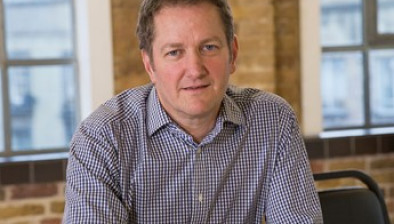Edinburgh plans to move 700 people from unlicensed accommodation by end of month

Homelessness organisations have criticised plans by the City of Edinburgh Council to move 700 homeless people out of unlicensed temporary accommodation before the start of December.
The local authority provided hundreds of rooms in hotels and B&Bs as temporary accommodation in response to rising demand since the pandemic when emergency action was taken to prevent the spread of Covid-19.
However, more than 700 households still live in 28 properties that have failed to meet licensing regulations as Houses in Multiple Occupancy (HMO).
Lawyers have warned the council it is committing a criminal offence by paying operators who don’t comply with its own health and safety licensing requirements. These include checks a landlord is a fit and proper person, and that tenants are afforded adequate living standards, and an appropriate number of bathrooms and toilets are provided, which most hotels are unlikely to pass, Local Democracy Reporter Donald Turvill has reported.
At an emergency housing committee meeting this week, councillors agreed to suspend new applicants for homeless housing and non-urgent repairs in order to prioritise moving people out of HMO accommodation to more suitable properties.
Housing convener Jane Meagher said: “With greater numbers of people facing homelessness, some of the most expensive private rents in the UK and insufficient funding from the Scottish government to build more homes, the pressures on temporary accommodation are unprecedented.
“The stark choice facing us is that we either house people in unlicensed HMOs or people will have to sleep on the streets which no one wants.
“We’re in a critical position that means we need to escalate our efforts to address this.”
The council reiterated that it “urgently needs to move people out of these properties and find alternative temporary accommodation”, stating its plans to use “existing council stock” and engage with housing providers to ensure licences meet regulation standards.
Ms Meagher said: “The council leader and I have spoken with senior ministers and the Scottish government recognises that we need to work together on this to make sure everyone facing homelessness in Edinburgh and beyond is supported.”
However, with an increasing lack of housing in the capital, charities have warned the move could lead to some homeless people being moved into temporary accommodation outside the city - and others sleeping rough.
Ewan Aitken, chair of Shape, a collective of 20 charities involved with tackling homelessness, urged councillors to allow more time to address the crisis as he said moving people out at as short notice as was being proposed risked causing “more harm”.
He said: “I’m thinking about the consequences of moving this many people, many of whom are vulnerable, from one form of temporary accommodation to another in a very short timescale.”
Mr Aitken, who is also CEO of Cyrenians, highlighted that half of the people who present as homeless require additional support often provided on site at the hotels and B&Bs used, and that the same level of service would not be available to those being moved into flats or houses.
“Given what they’ve gone through,” he said, “the consequences of that for them may mean a reaction that will say either ‘I’m not moving,’ or ‘I’m leaving’. Or if they have to move, they will be less able to maintain that tenancy because the support requirements would be more stretched, or it’s not in a community that they can build those support requirements, and so you have people ending up back on the streets or you will be in tenancies that are actually less viable and much more difficult to support.
“Which means they’re more likely to break down. And you’ll have people re-traumatised by that experience. If there is therefore a way in which we can extend that period even for a short time then I think it is worth looking at really hard.
“The consequences of not achieving that - the human consequences - would be enormous.”
Mr Aitken added: “There is a defence that not having enough time meant there would be human harm caused by following through at the timescales there.”
The Haymarket Hub Hotel for the homeless, which has 65 emergency beds for anyone who turns up needing a place to stay, is one of the properties without an HMO licence which the council plans to stop paying for.
Alasdair Bennett, chief executive of the Bethany Christian Trust, which runs the Rapid Re-accommodation Welcome Centre, based within the hotel, in partnership with the council and Scottish Government, told the meeting: “With winter approaching, every night someone spends without shelter is a risk to their life. Keeping the centre open, with en suite facilities, the council supports individual’s privacy and stability.
“The average new attendance of people who are new to such circumstances, is about 26 new people every week…so the projected figures over the next 24 weeks is about 600 people that would therefore, if you remove the safety net, those individuals would either fall through it or increase the demand on every other service to seek to mitigate.”
He asked that the hotel remains open to the homeless until next April, adding the current timeframe was “just too short”.
But the council’s monitoring officer Nick Smith said: “You have no choice about whether to take an unlawful decision or not, you can’t. What you are able to decide is the manner in which to resolve that issue.
“You have a recommendation from officers as how to best do that. It is imperfect. I really wish I wasn’t sitting here today answering these questions, but we are where we are.”








